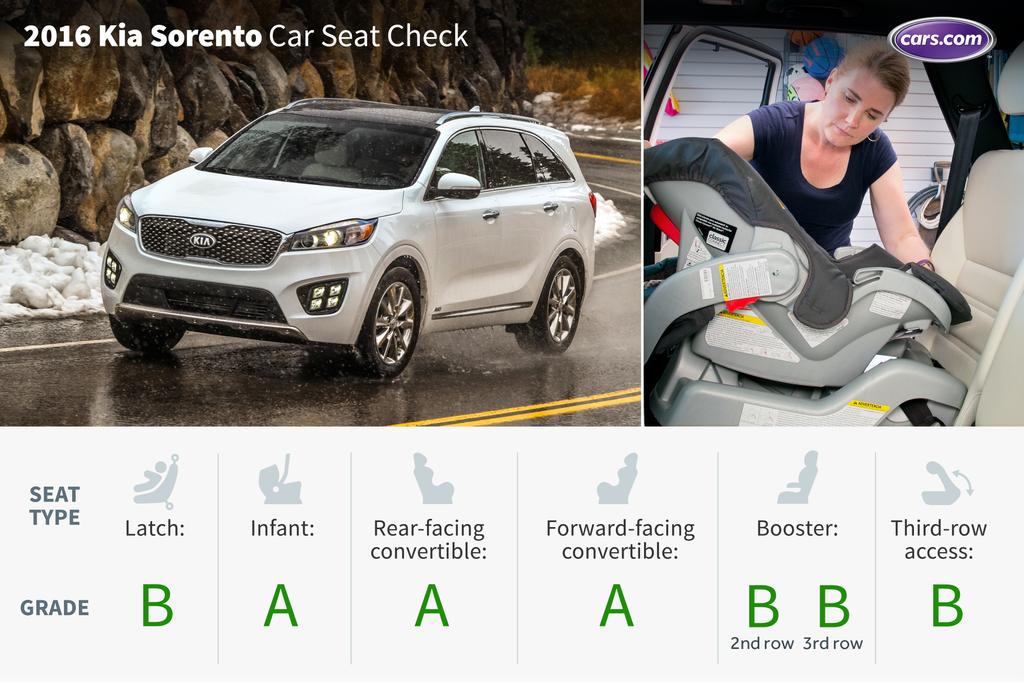
For families who only need a third-row bench for carpooling, the Kia Sorento is an SUV to consider. This SUV has an optional third row that could work well for hauling kiddos to school and back, especially with its sliding second row that allows for legroom adjustments and stows easily for those errand-running days. Earlier this year, we tested the two-row Sorento. It earned A and B grades in our Car Seat Check.
Parents who use rear-facing infant safety seats will note that there's a scoring discrepancy between the two-row Sorento and the three-row version. The infant seat earned a B in the two-row Sorento because the backseat is stationary, whereas in the three-row Sorento, the second row slides forward and back. When we install car seats in a car with a sliding backseat, we slide the backseat as far back as possible, which explains the grade discrepancy.
For this Car Seat Check, we tested a 2016 Sorento SXL with three rows of leather seats. Click here to read the two-row Sorento's Car Seat Check.
How many car seats fit in the second row? Two
How many car seats fit in the third row? Two
What We Like
- The second-row seats have two sets of lower Latch anchors. They sit about a half-inch into the seat cushions; we had to use a little muscle to connect to the anchors, but connection didn't require brute strength.
- The rear-facing infant and convertible seats both installed easily in the second row, and there was no need to move the front passenger seat forward to accommodate either car seat.
- The forward-facing convertible also fit well in the second row.
- The high-back booster seat fit well in the second row after we raised the head restraint, which was pushing it forward a bit. In the third row, the booster fit well and the fixed head restraints didn't affect the car seat.
- It's easy to access the third row from the passenger side: Just pull on a level and the second-row seat folds and slides forward.
What We Don't
- The Sorento's optional third row doesn't have lower Latch anchors or tether anchors. The lack of tether anchors means families can only have kids who use booster seats or just seat belts back there. It is not safe to use a forward-facing car seat in the third row.
- In the second and third row, the seat belt buckles are floppy, which can be difficult to grasp for younger kids trying to buckle up on their own.
- To access the third row from the driver's side, there's no magic lever to make it easy. First you need to manually slide the second-row seat forward and then fold the seatback. It's cumbersome at best. Also, the opening to the third row is narrow.
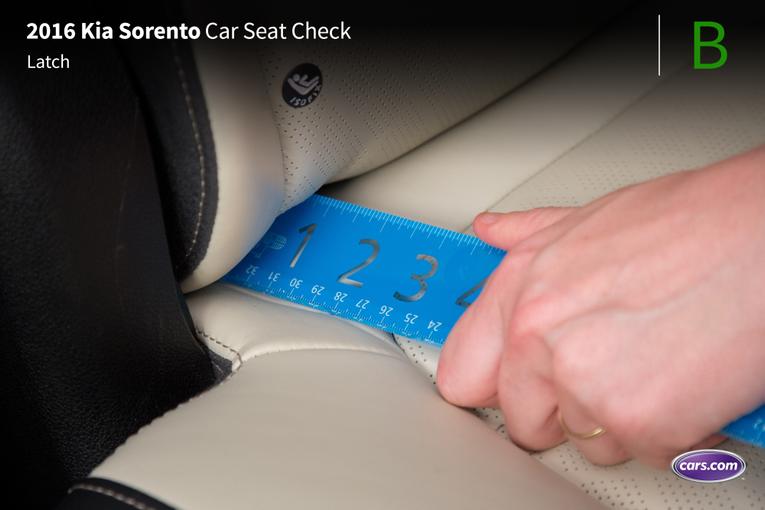
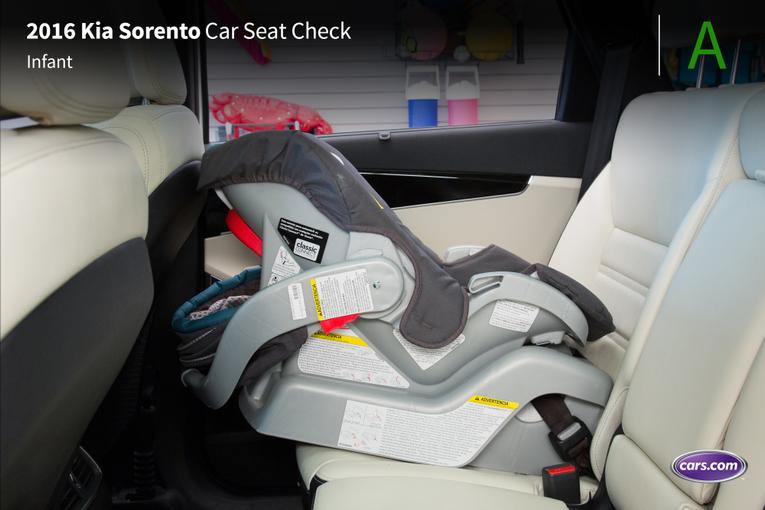
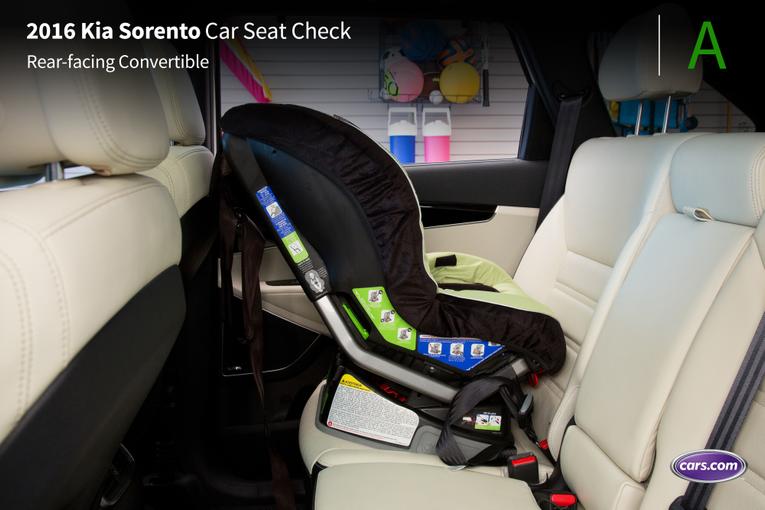
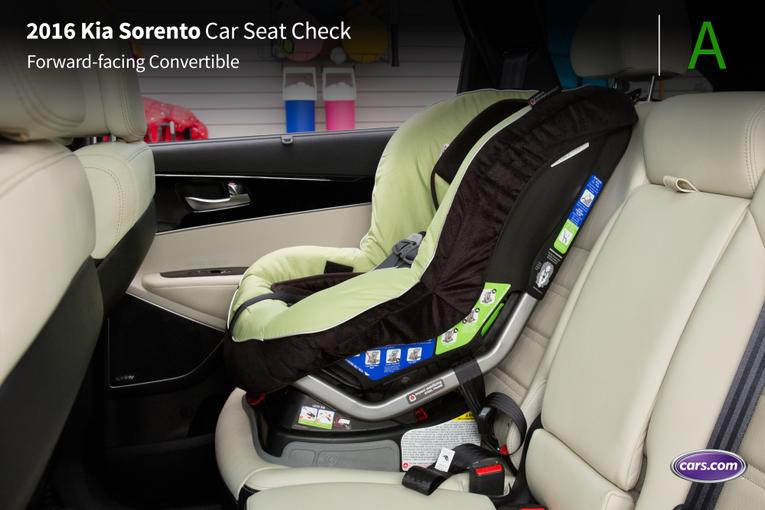
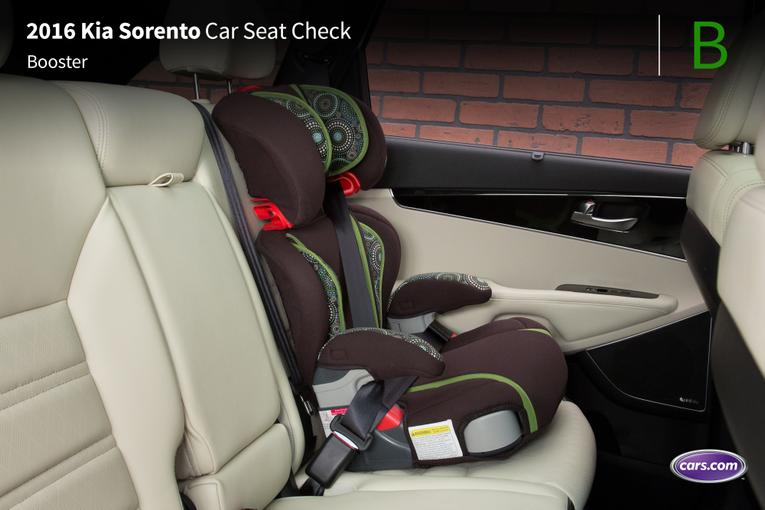
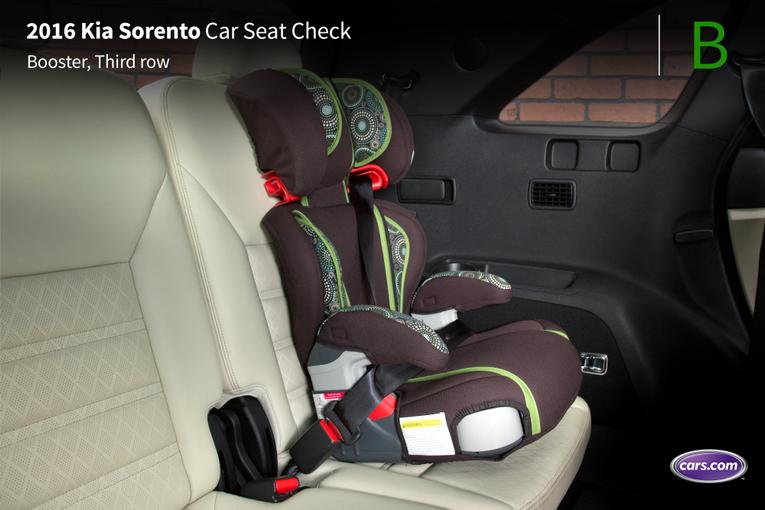
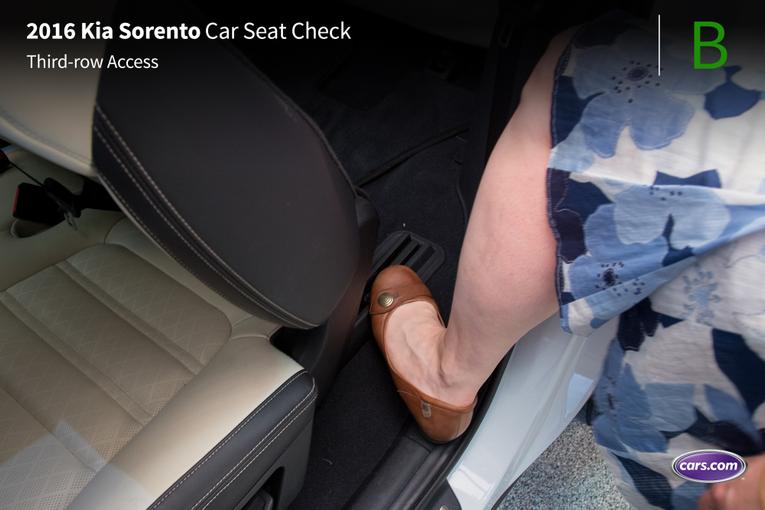
Grading Scale
A: Plenty of room for the car seat and the child; doesn't impact driver or front-passenger legroom. Easy to find and connect to Latch and tether anchors. No fit issues involving head restraint or seat contouring. Easy access to the third row.
B: Plenty of room. One fit or connection issue. Some problems accessing third row when available.
C: Marginal room. Two fit or connection issues. Difficult to access third row when available.
D: Insufficient room. Two or more fit or connection issues.
F: Does not fit or is unsafe.
About Cars.com's Car Seat Checks
Editors Jennifer Geiger and Jennifer Newman are certified child safety seat installation technicians.
For the Car Seat Check, we use a Graco SnugRide Classic Connect 30 infant-safety seat, a Britax Marathon convertible seat and Graco TurboBooster seat. The front seats are adjusted for a 6-foot driver and a 5-foot-8 passenger. The three child seats are installed in the second row. The booster seat sits behind the driver's seat, and the infant and convertible seats are installed behind the front passenger seat.
We also install the forward-facing convertible in the second row's middle seat with the booster and infant seat in the outboard seats to see if three car seats will fit; a child sitting in the booster seat must be able to reach the seat belt buckle. If there's a third row, we install the booster seat and a forward-facing convertible. To learn more about how we conduct our Car Seat Checks, go here.
Parents should also remember that they can use the Latch system or a seat belt to install a car seat, and that Latch anchors have a weight limit of 65 pounds, including the weight of the child and the weight of the seat itself.
No comments:
Post a Comment